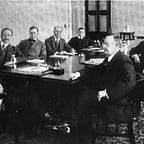The Problem with Virgin Galactic ($SPCE)
2021 has been an adventurous year for the stock market, especially with the popularity of SPAC (Special Purpose Acquisition Company). SPACs is not any new product of financial engineering, it was popular back in the 1980s as well, usually referred to as blank-check companies. The SPAC deal announced between Virgin Galactic and Social Capital gave some new millennial energy into these deals. Since its listing, Virgin Galactic has witnessed a turbulent movement in the markets, usually carried by investor enthusiasm followed by investor fear.
Virgin Galactic is an interesting and unique company. It is trying to commercialize space travel, and it has gained a lot of attraction from the public. Virgin Galactic is not the only private company in this space, it is competing with Elon Musk and Jeff Bezos. Now, according to the SPAC deal, the shareholders will own 59% of the company. Given about 260 million shares are outstanding, with each share trading for $45, the current market cap of $SPCE is near $11 billion. The math is quite tricky for some SPACS because if you look at the market cap on Yahoo Finance or Google, it might be different. This is because sometimes the market cap reflects the pre-merger valuation, so it does not take into account the shareholder structure of the deal until a later update.
Considering the market cap of $20 billion, with almost no revenue, reminds me of a dot-com era company. People might try to justify the valuation, based on the future potential of the company’s earnings, which might be a valid argument. Currently, the company has around $600 million in cash and has about 600 reservations for its commercial space flights. The ticket price for these flights is around $200,000, so the company can make $120 million in revenue if the flight program is successful. The company will take more reservations, as the last reservation was closed since 2014, and there is expected to be significant interest in space flight. But at a new ticket price of $600,000, the actual demand might not meet up to the investor’s expectation. While many people would like to go to space, the ticket price is out of reach for the majority of the population. And not every rich person on this planet wants to go to space, at least what I think. Even with my research, the future demand for space flights is highly unpredictable, and there isn’t any certainty of its future profits. Yet, the company is still valued at $20 billion. It is important to note that I am not a rocket scientist, so maybe my lack of knowledge in this space is leading me to a different conclusion than the markets.
It doesn’t mean that Virgin Galactic with a highly unpredictable business outlook will be overvalued at this market cap, but the valuation is significantly emphasized in the future potential of the company. These expected profits also carry more risks, whether it is short-term liquidity risks or long-term feasibility risks. Investors need to understand these risks because stock prices that increase sharply can also fall sharply, especially with companies that have yet to earn any material revenue.
